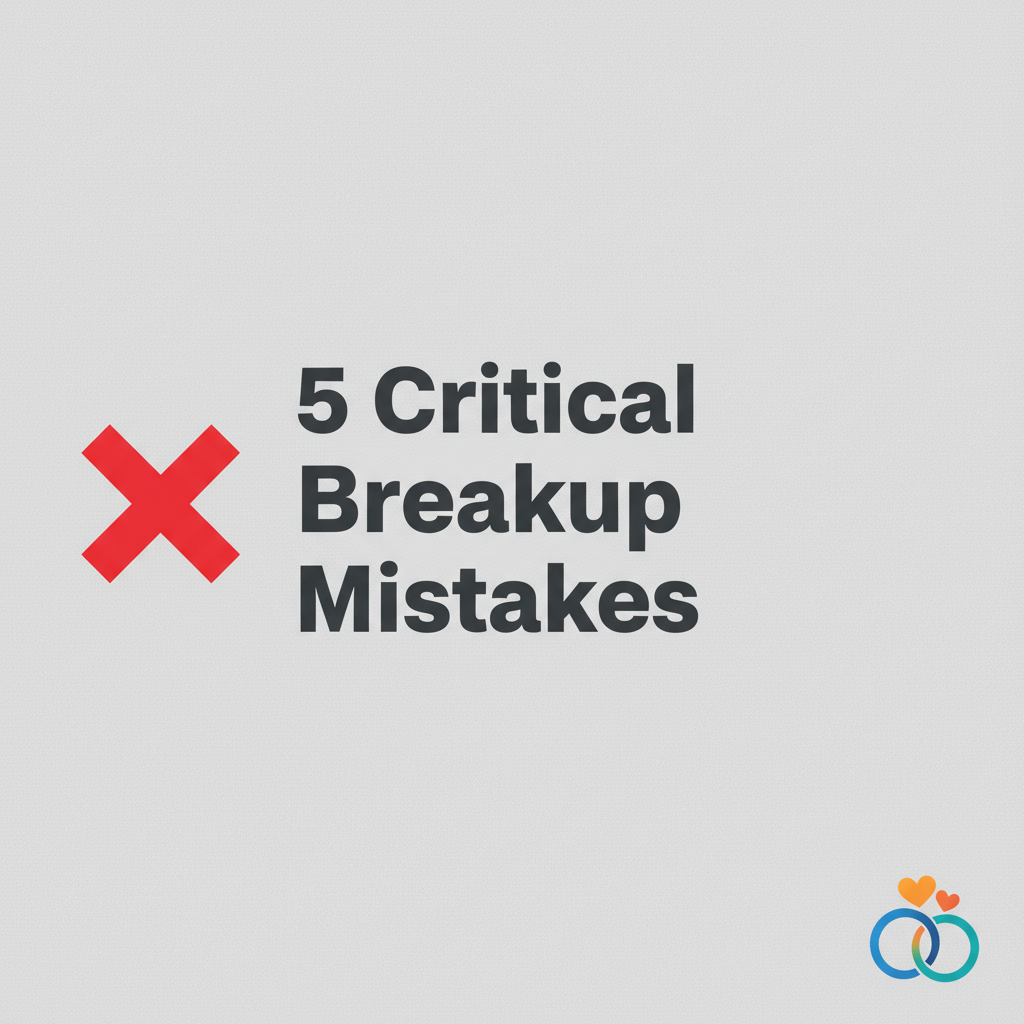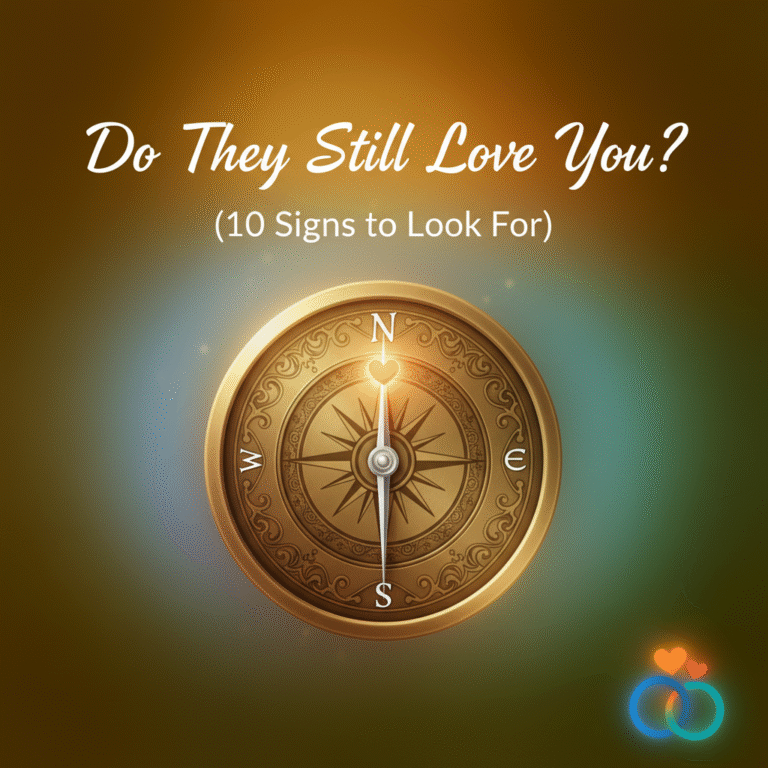The panic sets in fast after a breakup. It’s a gut-wrenching feeling that makes you want to do *something*, *anything*, to fix it right now. But this urge to act is a trap, and it often leads to critical mistakes that push your ex further away, sometimes for good.
Mistake #1: The Emotional Flood (Begging, Pleading, and Grand Gestures)
This is the most common and most damaging mistake. It’s the multi-page text sent at 2 AM, the constant calls, the pleading for “one more chance,” or showing up unannounced. From your perspective, you’re showing how much you care. From their perspective, you’re demonstrating a complete lack of emotional control.
The Psychology Behind It
This comes from a place of pure panic and scarcity. Your brain is screaming that you’re losing something valuable, triggering a desperate attempt to regain control. But these actions kill attraction instantly. Attraction is built on respect, and it’s impossible to respect someone who doesn’t respect your boundaries or their own dignity.
What to Do Instead
Commit to No Contact. Silence is your most powerful tool right now. It communicates strength, self-respect, and gives them the space to actually miss you. It shows you can survive without them, which is ironically the first step to making them want you back.
Mistake #2: The “Friend Zone” Trap (Agreeing to Be “Just Friends”)
It sounds like a mature, reasonable compromise. “Let’s just be friends” feels safer than completely letting go. But it’s a trap that puts you in a position of emotional purgatory. You’ll be stuck watching their life from the sidelines, hoping for a scrap of attention, while they get all the emotional support of your presence without any of the commitment.
The Psychology Behind It
You accept this deal out of a fear of total loss. You think keeping them in your life in *any* capacity is better than nothing. But by accepting friendship, you implicitly agree that you’re okay with the breakup and that a romantic relationship is off the table. You remove all romantic tension.
What to Do Instead
Politely decline. You can say something like, “I respect you too much to pretend I can just be your friend right now. Maybe someday, but for now, I need to focus on myself.” This is a powerful move that re-establishes your value and sets clear, respectable boundaries.
Mistake #3: Over-Analyzing Their Social Media
Who are they with? What does that song lyric in their story mean? Are they happier without you? Stalking their social media is a form of self-torture that provides zero reliable information. You are trying to decode messages that probably aren’t there, creating painful stories in your own head.
The Psychology Behind It
You’re looking for certainty in an uncertain situation. It’s an attempt to feel in control by gathering “intel.” But you’re only seeing a curated highlight reel, which will almost always make you feel worse. This behavior is a core part of what experts call the anxious-avoidant cycle, where one person seeks reassurance while the other pulls away.
What to Do Instead
Mute or block them. Not as a punishment, but as an act of self-preservation. The less you know about their day-to-day life right now, the easier it will be to heal and regain your emotional balance. Focus on your own feed, your own life. Check out our guide on the signs no contact is working to know what to look for instead.
Mistake #4: Putting Your Life on Hold
You stop going out with friends. You turn down opportunities. You sit at home, waiting by the phone, hoping they’ll reach out. You’ve effectively made getting them back your full-time job. This not only makes you miserable, but it also makes you a less attractive person.
The Psychology Behind It
You believe that if you move on, you’re signaling that you don’t care. You also might feel too depressed to do anything. But true, lasting attraction comes from having a full, vibrant life that someone else wants to be a part of. When you put your life on pause, you have nothing to offer but your neediness.
What to Do Instead
Live your life. Even if you have to force it at first. Go to the gym. See friends. Start a new hobby. Post about it. Not for them, but for you. Rebuilding your own life is the single most attractive thing you can do. It’s the only path that guarantees you’ll be happy, whether they come back or not.
Mistake #5: Ignoring the Real Reason for the Breakup
You promise to “change everything” and “do whatever it takes” without actually understanding what went wrong. Breakups rarely happen for one simple reason. Often, there are underlying issues—communication breakdowns, mismatched values, unresolved conflicts—that led to the final split.
The Psychology Behind It
It’s easier to look for a quick fix than to do the hard work of self-reflection. Admitting your own role in the breakup is painful. But without understanding the root cause, you’re just putting a bandage on a deep wound. Even if you did get back together, you’d be doomed to repeat the same patterns.
What to Do Instead
Use the no contact period for genuine reflection. What were the recurring arguments about? What was your contribution to the dynamic? What needs to fundamentally change for a new, healthier relationship to be possible? True change is what will give you a real second chance.
FAQ
Q: Is it a mistake to apologize to my ex?
A: A genuine, specific apology for your actions is not a mistake. A desperate, pleading apology for their feelings (“I’m sorry you felt that way”) or begging for forgiveness is.
Q: What if I already made some of these mistakes?
A: It’s okay. The best thing you can do is stop immediately and start a strict period of No Contact from this moment forward. Your change in behavior is more powerful than any past mistake.
Q: How do I know if they’re testing me?
A: If they reach out with a low-effort text (“hey” or “sup”), they might be testing the waters. Don’t jump to reply. A calm, friendly response after a short delay shows you’re not anxiously waiting by the phone.







